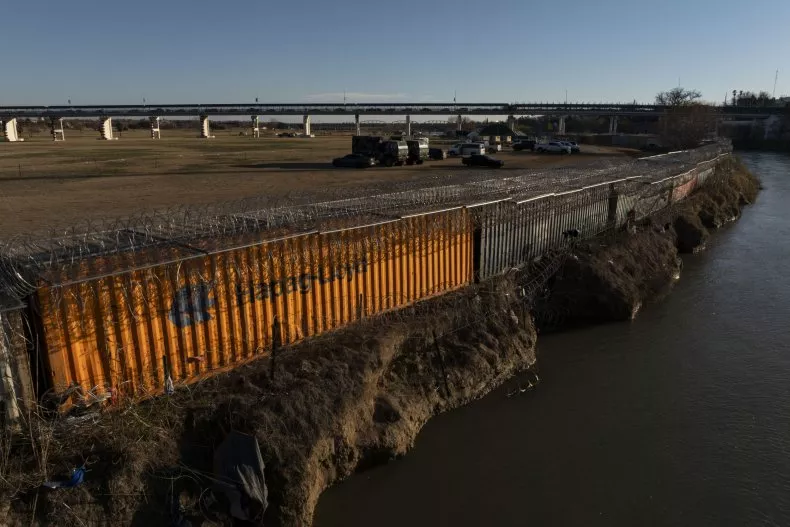This article discusses the role of disinformation in political violence and offers practical tips for being a more savvy, responsible consumer of news and information who avoids doing harm.
A leading political violence monitoring organization put the United States on its Conflict Watch List for 2024. Like many, ACLED believes our upcoming elections could serve as a flashpoint for organized violence. Yet in recent weeks, it’s conflict over immigration that is escalating. Can Americans find common ground across the widening chasm of our political differences and contain the conflict before it becomes more widespread and violent?
Not if we can’t agree on essential facts—something that is difficult in environments where disinformation spreads like wildfire. Disinformation is false information designed to trigger subconscious biases and deceive. It is not uncommon for authoritarians to use disinformation to catalyze popular fear, anger, and uncertainty over shifting demographics and cultural beliefs into distrust and animosity toward their political adversaries and fellow human beings.
In the digital age, shock-generating stories can lead to real-world consequences at an unprecedented pace. In early 2023, multiple bank failures happened from one day to the next as rumors and panic spread online. It’s possible to imagine a similar scenario where sensational information about border issues quickly mobilizes a segment of Americans to take matters into their own hands—like they did on Jan. 6, 2021 over an election they falsely believed was stolen.
Let’s look at a few uncertain and disputed facts about the current border standoff.

On Jan. 10, Operation Lone Star troops under Texas Governor Abbot’s control unexpectedly seized control of a public park in the south-central border town of Eagle Pass, using Humvees and setting up fencing. In response to a Supreme Court vote that Texas must allow the U.S. Border Patrol to remove that razor wire fencing, Governor Abbot took a stand, defied the court’s direction, and declared an invasion at the border.
But is there really an invasion? Elected Republican representatives have made statements from Eagle Pass over the past month that immigration levels are at historic highs. Meanwhile, the alt-right information ecosystem has been dropping not-so-subtle nudges that most people crossing the border are of military age, implying they may form a sort of fifth column threat to the United States.
But another group, the Eagle Pass Border Coalition, said the park takeover came after the number of unauthorized border crossings there had dropped precipitously, at least on that stretch of the Rio Grande. There is a clear lack of shared understanding about who the immigrants are and the threat they pose to national security.
But the disinformation doesn’t end there. Viral video reels from unknown and evangelical sources (among others) are suggesting the Supreme Court does not have the authority to rule on issues affecting Texas and other states in a federal system. The justices are being called anti-democratic oligarchs. This campaign is already chipping away at the perception of legitimacy of the same Court that has critical election issues on its docket.
This is an important moment for preventing further escalation that could lead to clashes between citizens or attacks against asylum seekers along the border—or even different parts of the country.
One of the best ways to prevent the escalation is by ensuring everyone has fair and accurate information. That means being literate, not just in language, but to the ways of the media itself. Below are some steps we can all take to reduce bias and help avoid the potential dangers of disinformation. They are based on my decades of experience monitoring political violence and peacebuilding around the world.
- Beware of emotion-rich headlines, statements, and pictures. If an article or social media post evokes strong emotions of any sort, someone may be trying to trigger your biases and manipulate you. It’s important to pause to let new information sink in and do additional research before formulating an opinion.
- Identify sources of information and assess their credibility. It is also important to carefully consider who is producing the information you’re consuming. How credible is that outlet or person? What is their history and reputation? What are their biases? Just because you like someone or they’ve been right in the past doesn’t mean they always have accurate information.
- Look for evidence and citations to support core claims. It’s important to check the dates and places on news and information, as well as to investigate the substance of core statements, events, and data. Reputable academic references will likely be more credible than a singular anecdote or a general observer or content creator’s opinion. Whenever possible, I go to local media outlets and primary institutions to help validate the credibility of information.
- Consider the broader context. When I find news of interest, I try to read multiple articles from diverse, credible sources, as well as opinions from reputable experts to assess what other views are out there and if my understanding conforms or clashes with the general understanding. The more impactful and/or divisive the news is, the longer I take to research and reflect on it before recommending it to others.
- Only share information that has been verified and does no harm. As a peacebuilder, I only share information that is well supported—and I have taken down information after realizing it was not accurate. I also refrain from sharing articles based solely on the headline and posts that contain name-calling and insults. If what I’m reading detracts from constructive civil discourse, I keep my finger off the trigger altogether.
The world is watching the U.S. this year. In the wake of the upcoming elections, will we have moved from ACLED’s watch list to their list of countries experiencing organized political violence? By slowing down and being more intentional in our media consumption, we can all help mitigate the chances of that and create the shared understanding necessary for building a more united and peaceful country.
–
Danielle M. Reiff is a professional peacebuilder who has lived and worked around the world promoting democracy, human rights, and peace. She is currently leading the Peacebuilders initiative in the lead-up to the 2024 Presidential elections to promote nonviolence, unity in diversity, and a peaceful transfer of power. You can learn more and sign up for the Peacebuilders email list at www.peacebuildersunite.com.
The views expressed in this article are the writer’s own.



